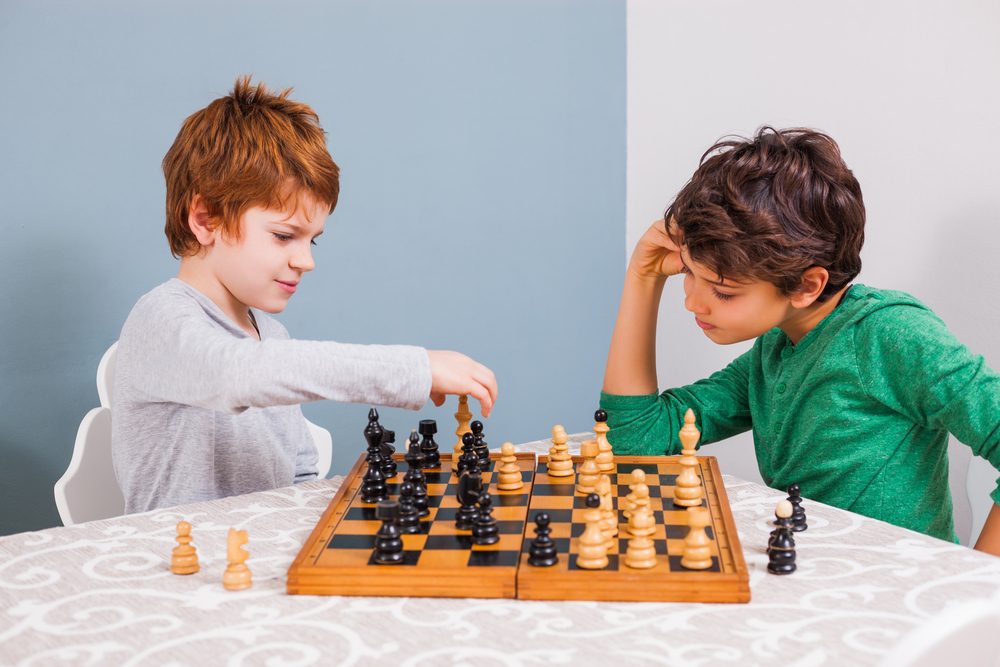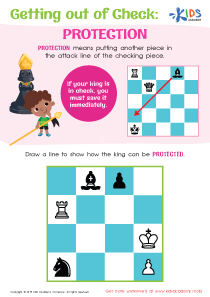Critical thinking development Extra Challenge Chess Worksheets for Ages 5-6
4 filtered results
-
From - To
Explore our "Extra Challenge Chess Worksheets" designed specifically for children aged 5-6 to enhance critical thinking skills. These engaging worksheets introduce young learners to the captivating world of chess while promoting cognitive development. Through fun and interactive puzzles, kids will learn strategic reasoning, problem-solving, and decision-making—key elements of critical thinking. Each worksheet encourages players to visualize moves, anticipate outcomes, and think several steps ahead, fostering a strong foundation in both chess and analytical skills. Perfect for home and classroom use, our printable resources make learning enjoyable, inspiring children to become confident thinkers and aspiring chess enthusiasts!
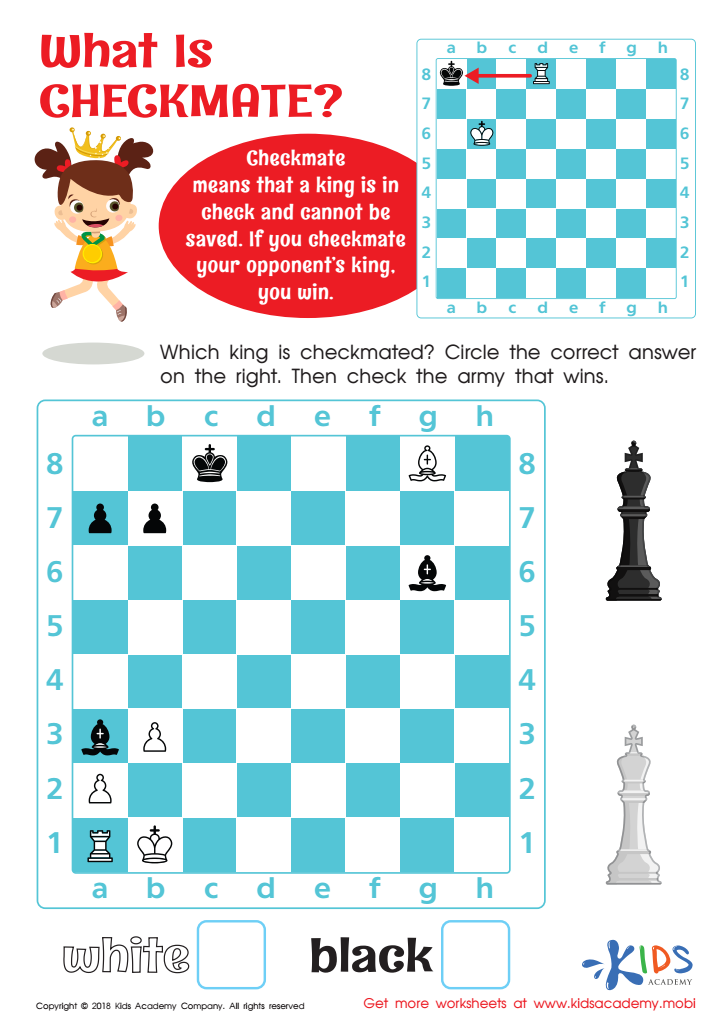

What is Checkmate? Worksheet
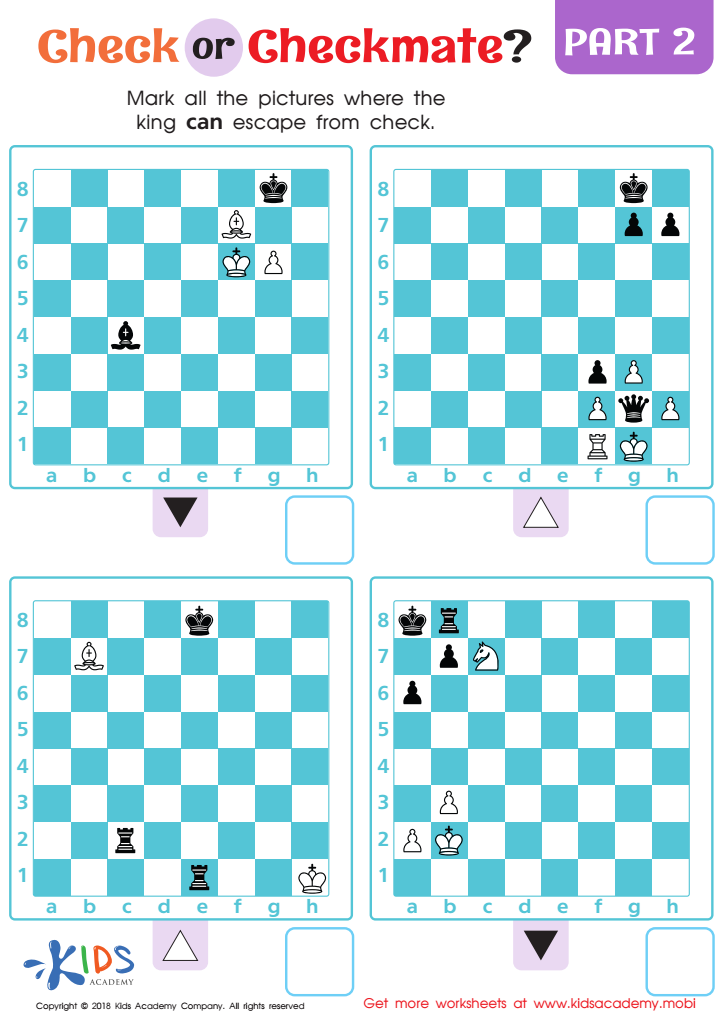

Check or Checkmate: Part 2 Worksheet
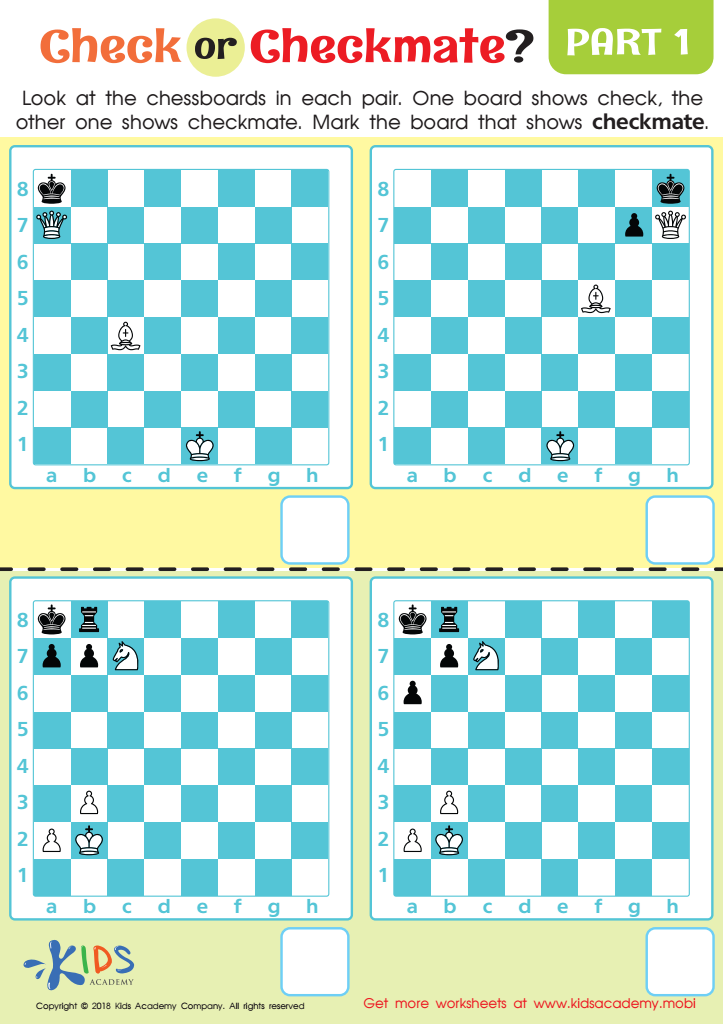

Check or Checkmate: Part 1 Worksheet
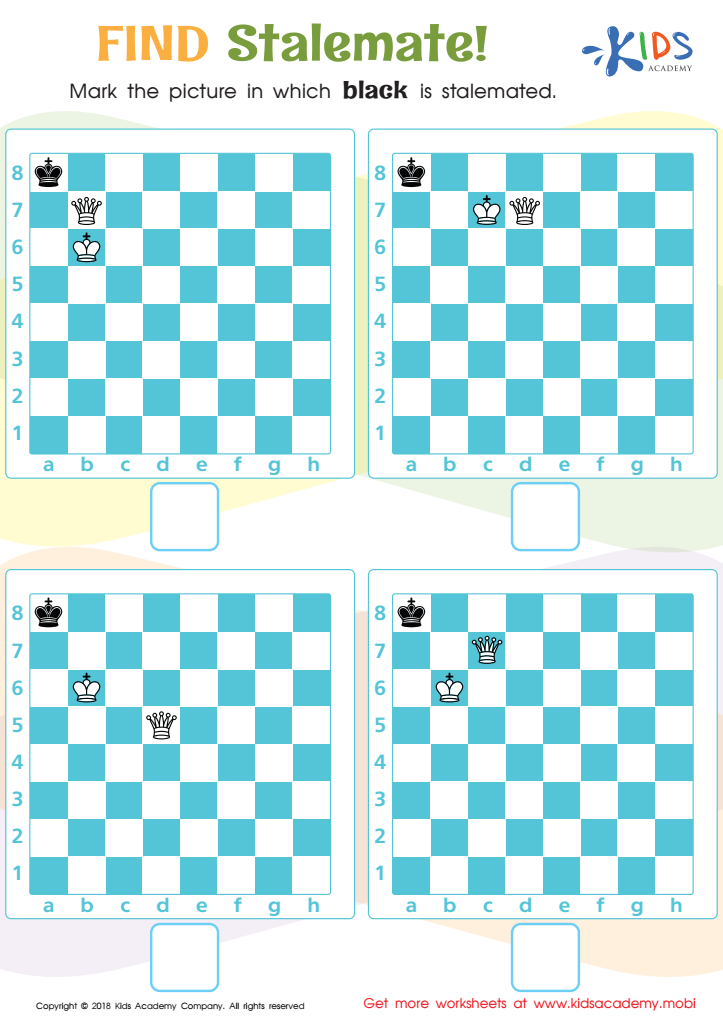

Find Stalemate! Worksheet
Critical thinking is essential for children's cognitive development, and incorporating activities like Extra Challenge Chess can significantly enhance this skill in young learners ages 5-6. This game offers a fun yet structured environment where kids can learn to strategize, analyze situations, and make thoughtful decisions. By playing chess, children develop patience and focus, as they need to evaluate their moves carefully while considering their opponent’s strategies.
Parents and teachers should care about this development because critical thinking extends beyond chess; it plays a fundamental role in a child’s overall learning. As critical thinkers, children become adept at problem-solving, grasping concepts, and approaching challenges creatively. These skills are vital for academic success, helping children excel in subjects such as math and science that require logical reasoning.
Additionally, the social aspects of chess, such as taking turns and engaging with another player, foster emotional intelligence and resilience. Learning to win or lose gracefully contributes to a well-rounded character. Therefore, promoting critical thinking through Extra Challenge Chess is an investment in a child's future, equipping them with essential life skills that enhance both their education and interpersonal relationships.

 Assign to My Students
Assign to My Students









